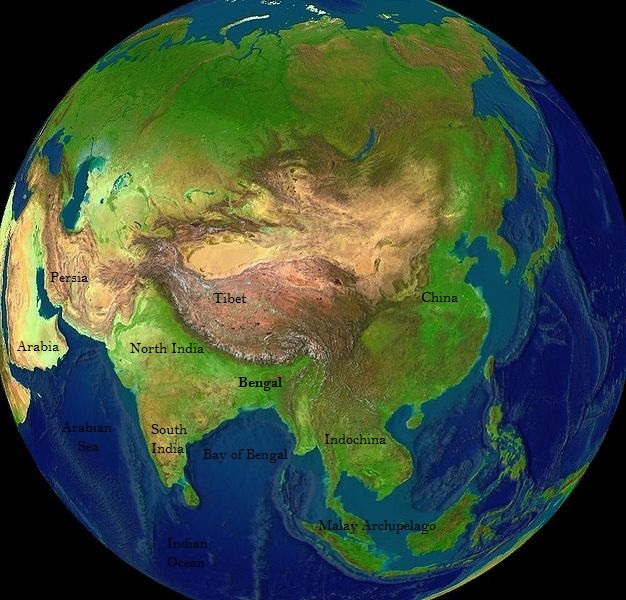Bengal
 Bengal ( ), or , }} is a historical geographical, ethnolinguistic and cultural term referring to a region in the eastern part of the Indian subcontinent at the apex of the Bay of Bengal. The region of Bengal proper is divided between the modern-day sovereign nation of Bangladesh and the Indian state of West Bengal.
Bengal ( ), or , }} is a historical geographical, ethnolinguistic and cultural term referring to a region in the eastern part of the Indian subcontinent at the apex of the Bay of Bengal. The region of Bengal proper is divided between the modern-day sovereign nation of Bangladesh and the Indian state of West Bengal.The ancient Vanga Kingdom is widely regarded as the namesake of the Bengal region. The Bengali calendar dates back to the reign of Shashanka in the 7th century CE. The Pala Empire was founded in Bengal during the 8th century. The Sena dynasty and Deva dynasty ruled between the 11th and 13th centuries. By the 14th century, Bengal was absorbed by Muslim conquests in the Indian subcontinent. An independent Bengal Sultanate was formed and became the eastern frontier of the Islamic world. During this period, Bengal's rule and influence spread to Assam, Arakan, Tripura, Bihar, and Orissa. Bengal Subah later emerged as a prosperous part of the Mughal Empire.
The last independent Nawab of Bengal was defeated in 1757 at the Battle of Plassey by the East India Company. The company's Bengal Presidency grew into the largest administrative unit of British India with Calcutta as the capital of both Bengal and India until 1911. As a result of the first partition of Bengal, a short-lived province called Eastern Bengal and Assam existed between 1905 and 1911 with its capital in the former Mughal capital Dhaka. Following the Sylhet referendum and votes by the Bengal Legislative Council and Bengal Legislative Assembly, the region was again divided along religious lines in 1947.
Bengali culture, particularly its literature, music, art and cinema, are well known in South Asia and beyond. The region is also notable for its economic and social scientists, which includes several Nobel laureates. Once home to the city with the highest per capita income level in British India, the region is today a leader in South Asia in terms of gender parity, the gender pay gap and other indices of human development. Provided by Wikipedia
